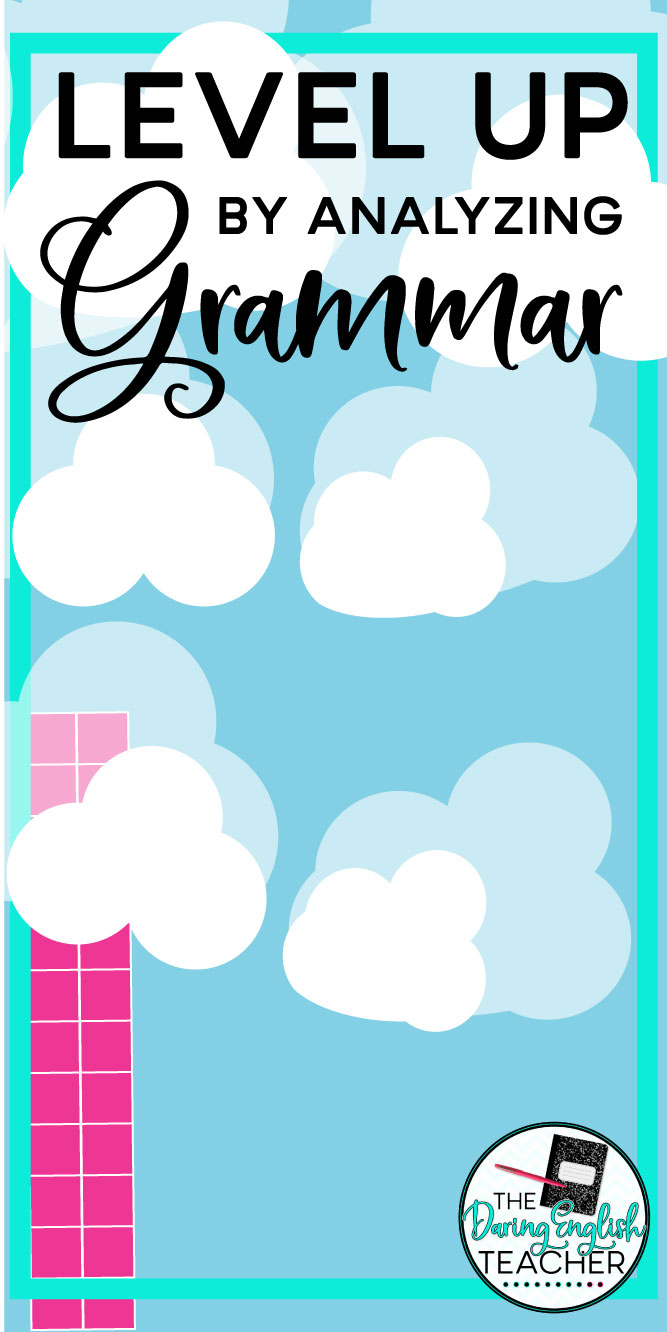Learning, and even mastering, grammar is an essential skill, and your classroom can be an integral part of this journey for your students. As teachers, we can take the novels we read in class to another level by analyzing the grammar within them. This activity will help students both comprehend the novel in a more significant way and also understand the importance of grammar in their everyday lives.
1. Have students look for keywords they don’t recognize.
Spelling and vocabulary are prominent components when it comes to understanding grammar. Vocabulary and spelling are easily taught through the novels you teach. When your students take note of words they do not recognize, they are increasing their vocabulary comprehension, and their writing will improve because of it.
2. Analyze the types of sentence structures found in the novel.
Building sentences, and seeing how sentences work, is really important for your students to understand in their journey to mastering grammar mechanics. Novels are an excellent way to find different kinds of sentences because since they are more extended pieces of text, there are a variety of sentences for your students to analyze. For example, you could show them Maya Angelou’s I Know Why the Caged Bird Sings and point out the rhythm of the sentences and the balance between shorter and longer sentences.
3. Read important parts of the novels aloud.
I cannot stop recommending reading out loud to your class because it is so crucial for them to hear the words they are reading. When you read out loud, or even have your students read out loud to the class, they will be able to listen to the grammar itself working, and their comprehension will grow. Find parts of the novel that experiment with different grammar techniques so that your students can listen to, or read out loud, the correct way to write.
4. Assign a few paragraphs on their thoughts on the novel.
Have your students write about what they think of the novel, good and bad, as a homework assignment or as an in-class assignment, and then go back to the assignment a few days later to have them edit their work. Have them point out sentences they can improve with new skills they have recently learned. This way you can have students think about what they are learning in the books you read and also what they are learning in a more mechanical sense.
5. Choose a mechanic for students to search for in the novel.
Take one grammar mechanic, a part of speech or punctuation; you want your students to really understand and have them analyze the book to find the places it is located in. You could make it a game, and have them interested in locating this mechanic. After they see it in the book several times, ask them what makes this mechanic important. Why did the author place it there? What is the significance of the number of times it is found in similar locations?
6. Give students time to write their own personal questions about grammar.
Before the unit begins, have your students come ready with questions about the mechanics of writing. This way, you know what they are struggling with and what they need the most help with. You can then later use the best questions in your lessons. Sometimes students won’t say what they are struggling with, and if you give them the opportunity to come forward with their struggles, you can better adapt the lessons to their personal questions.




